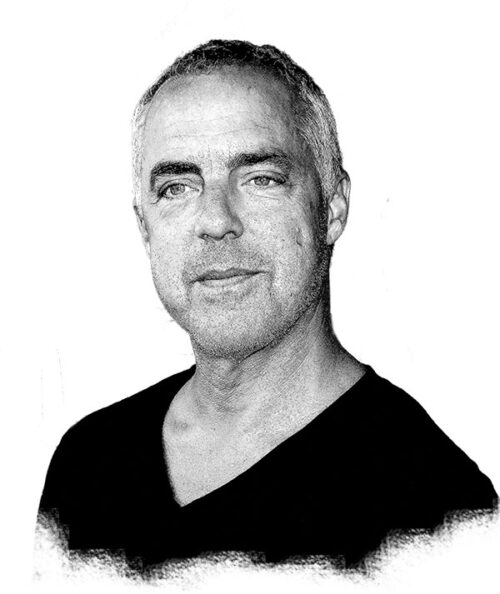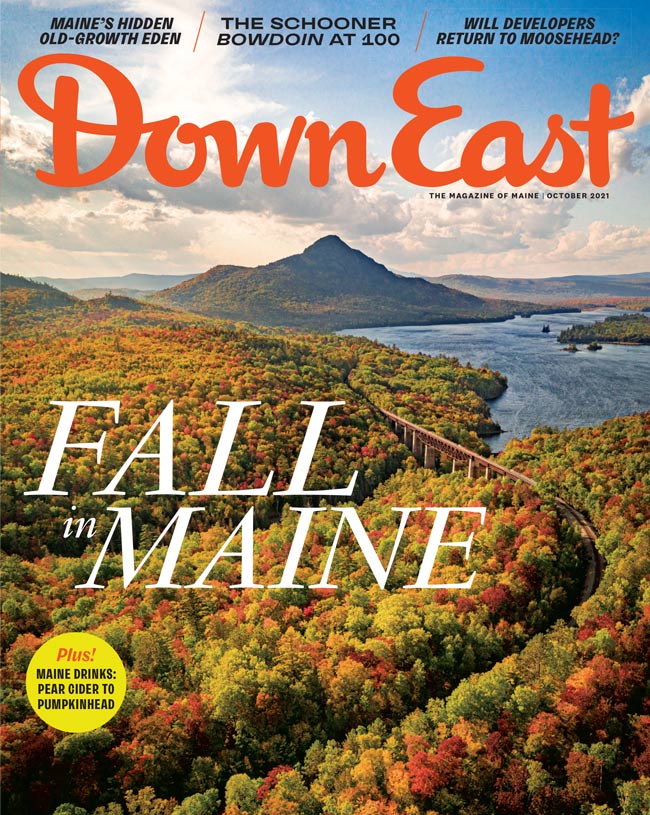
By Brian Kevin
From our October 2021 issue
Titus Welliver has given plenty of interviews discussing his seven seasons playing detective Harry Bosch on Amazon Prime’s hit police procedural Bosch, which recently dropped its seventh and final season. But when we caught up with him recently, the show — and its forthcoming spinoff, on Amazon’s IMDb TV, in which Welliver will carry on the role — seemed far from his mind. Instead, the 59-year-old launched into a fond, introspective meditation on his childhood and adolescent summers (and one-off school year) in Lincolnville and the midcoast, where his father, eminent landscape painter Neil Welliver, summered and eventually relocated.
“Summers consisted of being kind of feral and running around in the woods, riding around on horses, raking blueberries,” Welliver recalls. “I don’t remember wearing all that much clothing. The bottoms of my feet were like moccasins. I was covered with mosquito and blackfly bites, baked by the sun. The whole day consisted of rolling out of bed, eating, then swimming in Pitcher Pond or Megunticook Lake or rolling down to Bayside.”
Welliver ran with the local kids — many of whom are friends today — canoeing, fishing, hunting, raising a little hell as a teen. On weekends, he joined his dad and stepmom at parties hosted by the luminaries of postwar art who lived or summered on the midcoast: Lois Dodd, Alex Katz, Fairfield Porter, Yvonne Jacquette. He particularly remembers dinners at sculptor Bernard “Blackie” Langlais’s place, in Cushing, a property littered with huge wooden sculptures. “Going to Blackie Langlais’s house as a kid was like going to Disneyland,” he says.
Welliver’s Maine memories are manifold. He’s been told he should write a book about his youth — a mishmash of Maine, Philadelphia, New Haven, and New York — and he hasn’t ruled it out. Until his father died, in 2005, he had his own place in Lincolnville, and he still visits today. When he does, the spot that moves him most is the Route 1 bridge at the delta of the Ducktrap River, along which his father kept his studio and farmstead.
“I use that place as the point of my compass,” Welliver says. “I used to jump off that bridge at high tide as a kid. I’ve walked that river a thousand times. My kids learned to swim there. Even a person who’s just driven across that bridge and looked right or left, depending which way they’re going, couldn’t help but be moved. For me, it holds the deepest sense of belonging and home.”
Headshot by Joe Seer | Shutterstock




